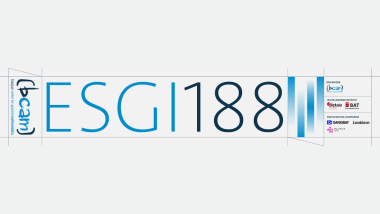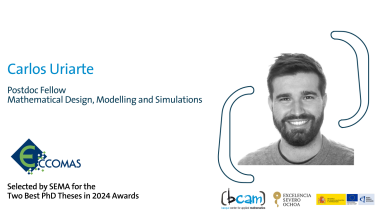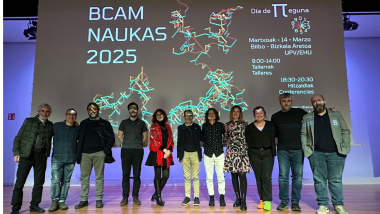Jon Ander Rivera defenderá su tesis doctoral el viernes 25 de noviembre
La defensa se llevará a cabo en la Facultad de Ciencia y Tecnología de la UPV/EHU de Leioa
Jon Ander Rivera se graduó en Matemáticas en la Universidad del País Vasco/Euskal Herriko Unibertsitatea (UPV/EHU) en 2017 y en 2018 obtuvo un máster en Modelización e Investigación Matemática, Estadística y Computación por la misma universidad.
Se incorporó al Basque Center for Applied Mathematics - BCAM y a lal UPV/EHU en 2019 como estudiante de doctorado.
Su tesis doctoral, Deep Learning for Inverting Borehole Resistivity Measurements, ha sido supervisada por Prof. David Pardo (BCAM-Ikerbasque-UPV/EHU) and Prof. Elisabete Alberdi (UPV/EHU).
La defensa se llevará a cabo la Sala Adela Moyua de la Facultad de Ciencia y Tecnología de la UPV/EHU en Leioa. Tendrá lugar el viernes 25 de noviembre a las 12:00 horas.
En nombre de todos los miembros de BCAM, nos gustaría desear a Jon Ander la mejor de las suertes en la defensa de su tesis.
PhD thesis Title:
Deep Learning for Inverting Borehole Resistivity Measurements
Abstract:
There exist multiple traditional methods to solve inverse problems, mainly, gradient-based or statistics-based methods. However, these methods have severe limitations. In particular, they often need to compute the forward problem hundreds of times, which is computationally expensive in three-dimensional (3D) problems.
In this dissertation, we propose the use of Deep Learning (DL) techniques to solve inverse problems. Although the training stage of a Deep Neural Network (DNN) may be time-consuming, after the network is properly trained it can forecast the solution in a fraction of a second, facilitating real-time operations. In the first part of this dissertation, we investigate appropriate loss functions to train a DNN when dealing with an inverse problem.
Additionally, to properly train a DNN that approximates the inverse solution, we require a large dataset containing the solution of the forward problem. To create such dataset, we need to solve aPartial Differential Equation (PDE) thousands of times. Building a dataset may be time-consuming, especially for two and three-dimensional problems since solving PDEs using traditional methods, such as the Finite Element Method (FEM), is computationally expensive. Thus, we want to reduce the computational cost of building the database needed to train the DNN. For this, we propose the use of rIGA methods.
In addition, we explore the possibility of using DL techniques to solve PDEs, which is the main computational bottleneck when solving inverse problems. Our main goal is to develop a fast forward simulator for solving parametric PDEs. As a first step, in this dissertation we analyze the quadrature problems that appear while solving PDEs using DNNs and propose different integration methods to overcome these limitations.
Related news
Sobre el centro
ESGI 188 (European Study Group with Industry) tendrá lugar en Bilbao del 26 al 30 de mayo de 2025
La gente del BCAM




